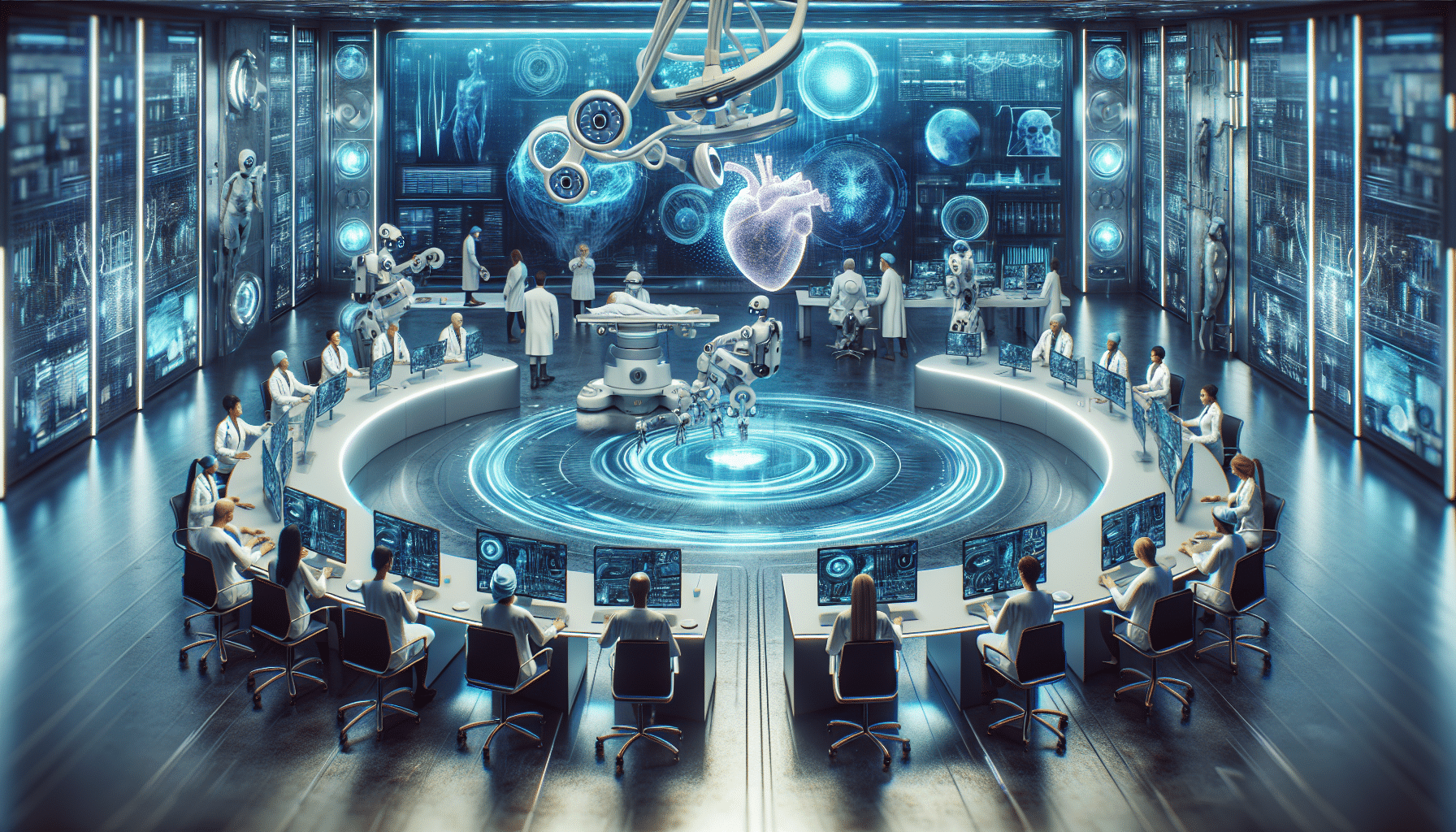Discover the latest scientific innovations that are revolutionizing the world of technology and health.
In a constantly evolving environment, it's essential to stay abreast of the advances that are changing the way we live and relate to technology and medicine. In this article, we'll explore some of the most surprising innovations that are marking a turning point in these fields.
Technology has advanced by leaps and bounds in recent years, and its applications in the healthcare field are increasingly impressive. From wearable devices that monitor our health in real time to algorithms that predict diseases before they manifest, science is transforming the way we care for our well-being. These innovations are enabling more accurate diagnoses, more effective treatments, and a better quality of life for millions of people around the world.
In the technological field, artificial intelligence and machine learning are opening up new possibilities in fields as diverse as robotics, virtual reality, and cybersecurity. These technologies are revolutionizing the way we interact with information and the world around us, and are opening up countless opportunities to improve efficiency and improve people's quality of life.
Furthermore, biotechnology is leading to impressive advances in the fight against diseases such as cancer, Alzheimer's, and Parkinson's. Gene therapies, regenerative medicine, and gene-editing techniques are opening new doors for the treatment of diseases previously considered incurable. These innovations are transforming the way we understand and treat diseases, and are offering hope to millions of people around the world.
In short, the latest scientific innovations are revolutionizing the world of technology and healthcare in unprecedented ways. These advances are opening up new possibilities and challenges, transforming the way we live and interact with the world around us. In this article, we'll explore in detail some of the most impactful innovations that are changing the way we think about technology and healthcare. Don't miss it!
Artificial Intelligence in Medicine
Artificial intelligence has revolutionized the way diseases are diagnosed and treated. With sophisticated algorithms, doctors can analyze large amounts of data to identify patterns and predict potential diseases in their early stages. This has led to greater diagnostic accuracy and more effective treatments.
Telemedicine and Virtual Consultations
Telemedicine has allowed patients to access medical care remotely, through virtual consultations with healthcare professionals. This has been especially useful during the COVID-19 pandemic, where physical contact has been limited. Telemedicine has proven to be an effective way to provide medical care to those unable to travel to an office.
3D Printing of Organs and Tissues
3D printing technology has advanced significantly in recent years, enabling the creation of artificial organs and tissues for transplants. This has reduced transplant waiting lists and saved the lives of patients who would otherwise have been unable to receive an organ in a timely manner. 3D printing is also used in the manufacture of custom prosthetics and medical devices.
Gene Therapy and Genome Editing
Gene therapy and genome editing have opened up new possibilities in the treatment of genetic diseases. Scientists can correct genetic mutations and modify DNA to prevent or treat inherited diseases. This represents a significant advance in personalized medicine and offers hope to patients with rare genetic diseases.
Virtual Reality in Rehabilitation
Virtual reality has been incorporated into physical and cognitive rehabilitation, allowing patients to perform exercises and therapies in a more interactive and motivating way. Virtual reality is also used in medical education, allowing students to simulate surgical procedures and practice in a virtual environment before facing real-life situations.

Conclusion
In conclusion, the latest scientific innovations are dramatically transforming the world of technology and healthcare. Artificial intelligence is improving the diagnosis and treatment of diseases, telemedicine is allowing patients to access medical care remotely, 3D printing is revolutionizing the creation of artificial organs and tissues, gene therapy and genome editing are opening up new possibilities for the treatment of genetic diseases, and virtual reality is improving physical and cognitive rehabilitation.
These innovations are improving patients' quality of life, increasing the accuracy of disease diagnosis and treatment, reducing transplant waiting lists, and offering hope to those with rare genetic diseases. They are also enabling healthcare professionals to enhance their skills and knowledge through virtual simulations.
In short, the latest scientific innovations are revolutionizing the way we approach healthcare and technology, opening up new possibilities for the future of medicine. There's no doubt that we are living in an exciting era of scientific and technological advancements that are improving the lives of people around the world!





